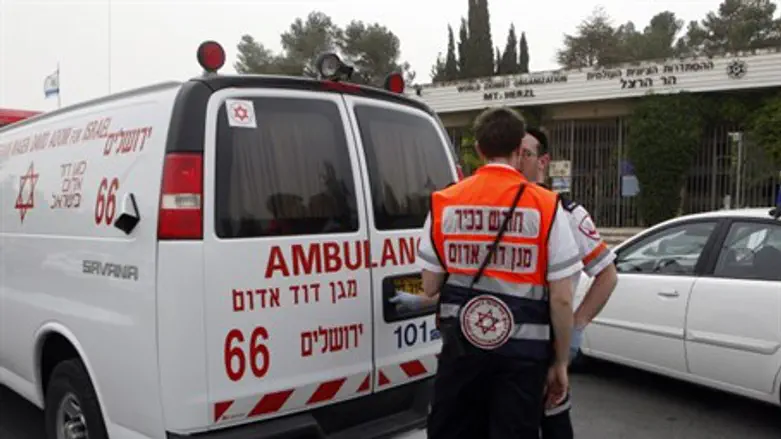
The price of Magen David Adom (MDA)'s ambulance rides rose by 5.7% Monday, according to Walla! News.
The Knesset's Labor, Welfare and Health Committee enacted the change, which is bound to provide a painful impact on the pocketbook of Israelis stranded far from the nearest hospital.
MDA CEO Eli Bin told the daily that the first-response organization is suffering from over 200 million shekel (approximately $57.6 million) in debt to local municipalities, as well as an outstanding debt owed to them from Hadassah Medical Center totaling some 500 million shekels ($143.8 million). MDA originally submitted a bid to the Ministry of Health to raise ambulance prices by 15%, but the Knesset Committee only partially granted the request.
While the practical impact of the price rise will be relatively minor on a per-kilometer basis, the added expenses will add up over time, Walla! noted. For example, an ambulance ride for a distance under 20 kilometers was once 355 shekel ($102); now, it will be 377 ($108). A distance of 96-100 kilometers will now cost 1,586 shekels ($456) instead of 1,500 ($431).
Prices are higher during nighttime hours, as well. Until now, an ambulance trip to a small community 45 kilometers from the nearest hospital cost 554 shekels ($160); now it will be 586 ($168). At night, the price was 666 shekels ($191) - now it will be 703 ($202).
Several MKs expressed reservations about the increase, noting it should be covered by the State - not the public.
"This is the difference between medical care in the city centers versus the periphery," MK Shuli Moallem (Jewish Home) noted. "Now, it is not enough that someone lives far from the medical center to begin with, but he also has to pay a higher price to access the center. This widens the gap even further."
Ambulance rides can be covered by Israel's state-provided healthcare programs - but in the event that a patient does not wind up receiving medical treatment at the hospital, he winds up having to pay for the ambulance.
"A woman in labor who lives in Modi'in would pay 1,000 shekels to get to the hospital, if she arrived and had not given birth," one MK stated. "It could be that because of the ongoing problems with [understaffing in] hospitals she would be released, then have to pay."
